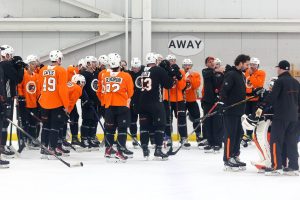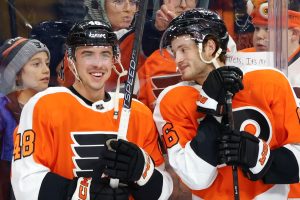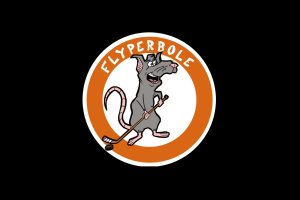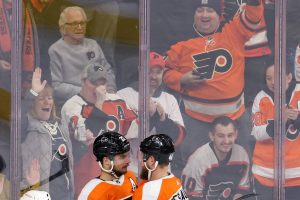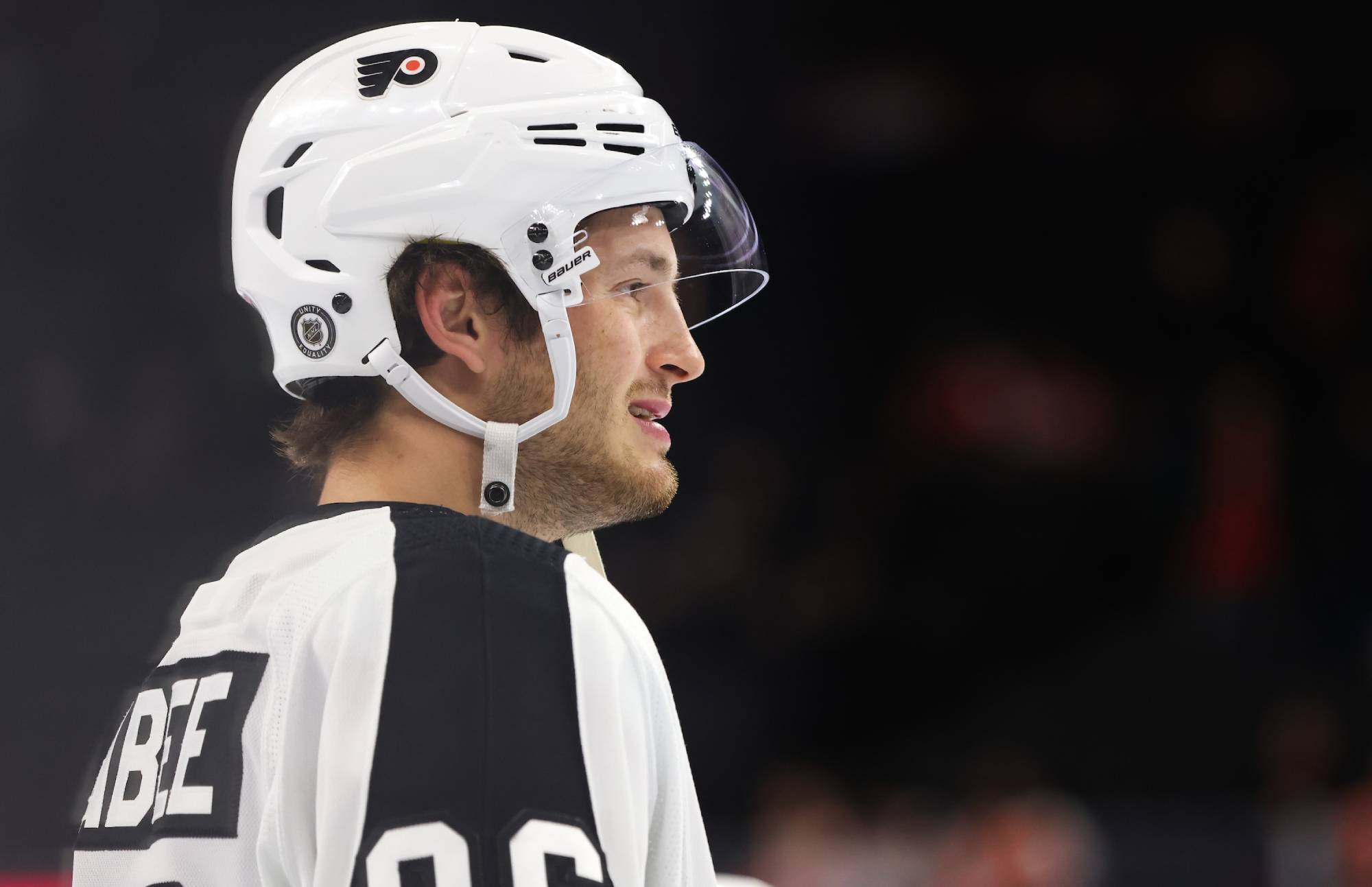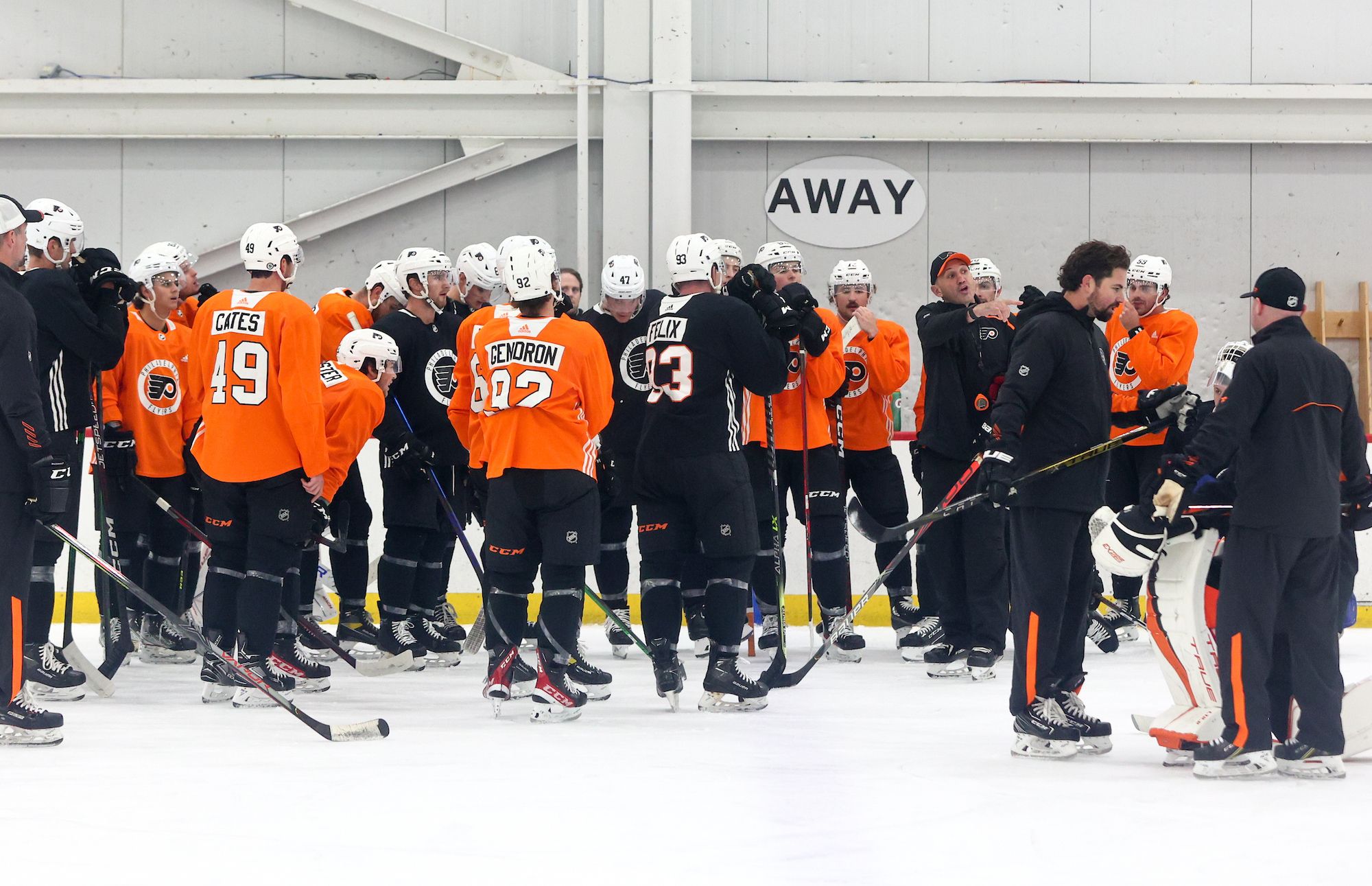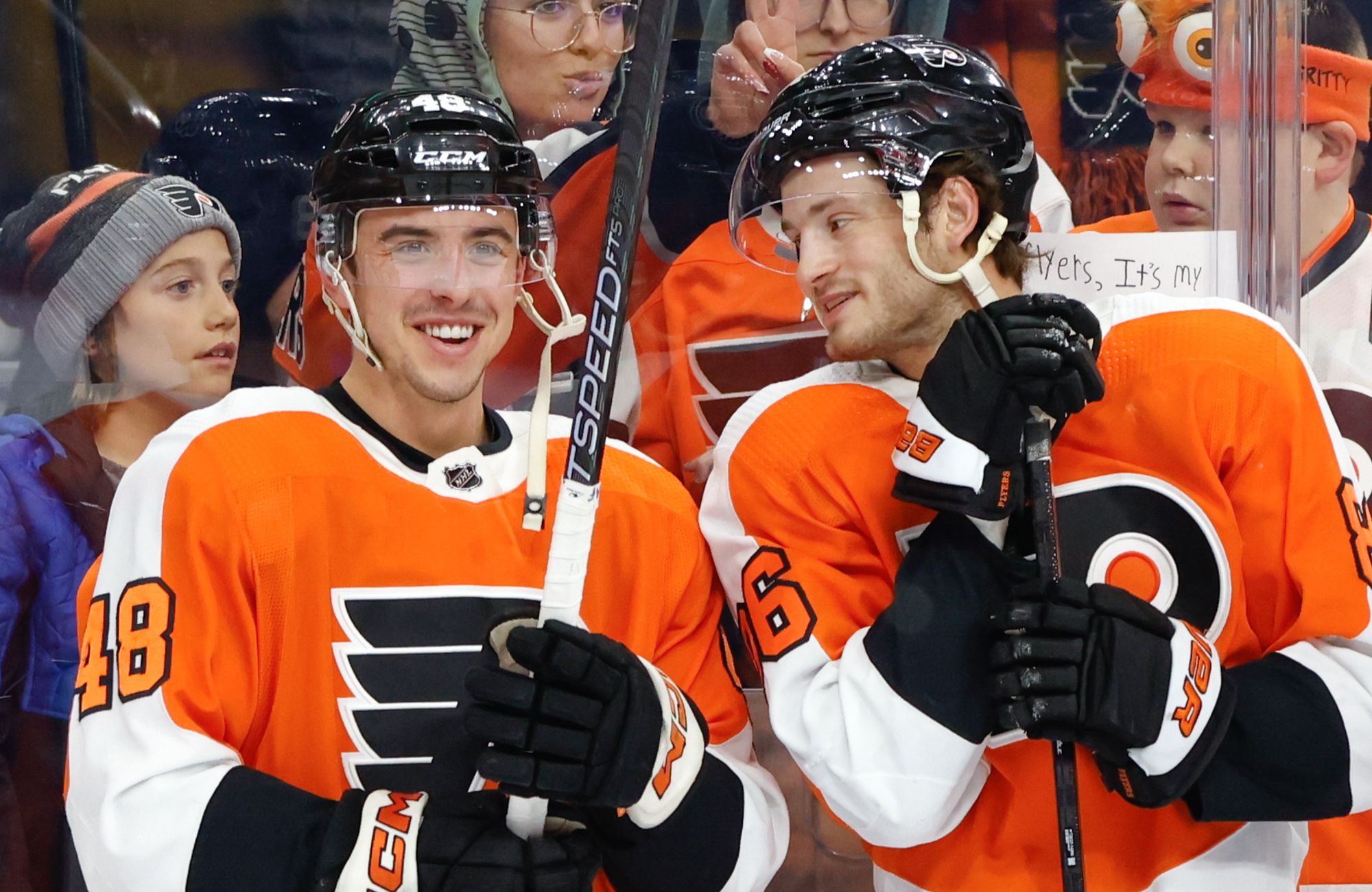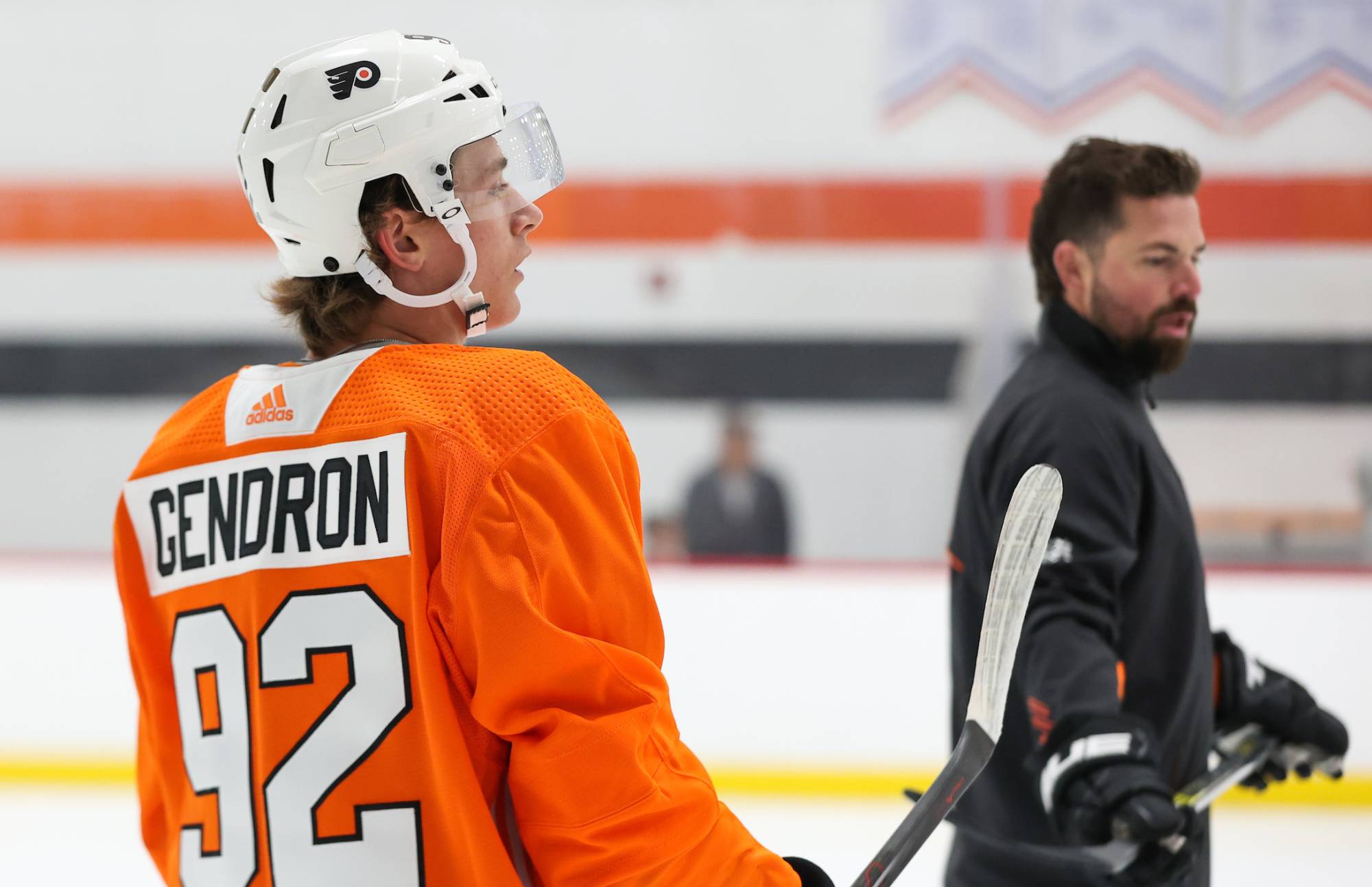An almost-daily column that takes a look back at how the Philadelphia Flyers have fared on this day, recalling some of the more memorable moments, achievements, and events that shaped the organization throughout the club’s storied history
The Flyers have a 3-3 record in six May 12 playoff contests, with one keeping them alive to force an improbable Game 7 after falling behind in the series 0-3.
While the victories would define some pretty fine moments, one of the losses marked the final game in the club’s beloved original building and spelled the end of an era.
Some of the more memorable moments and brief recaps in Flyers history that took place on May 12:
1974 — Terry Crisp’s late-first period goal snapped a 1-1 tie and Bernie Parent stopped 24 of 25 shots as the Flyers skated to a 4-1 triumph over the Boston Bruins at the Spectrum, grabbing a 2-1 Final series lead and moving to within two victories of the first Stanley Cup championship in franchise history.
The visitors opened the scoring when Johnny Bucyk beat Bernie Parent just over a minute after the opening faceoff, but it was all Philadelphia after that.
Goals by Tom Bladon (power play) and Crisp in the latter stages of the stanza gave Philly a 2-1 lead by the first intermission, before third period tallies from Orest Kindrachuk and Ross Lonsberry sealed the deal.
1995 — Goals by Rod Brind’Amour, Brent Fedyk, Eric Desjardins, and John LeClair staked the Flyers to a 4-0 lead, and Ron Hextall withstood a furious Buffalo Sabres comeback attempt in a 4-2 victory at the Aud, giving Philly a 3-1 Eastern Conference Quarterfinal series edge.
Brind’Amour’s goal came late in the opening stanza before Philadelphia jumped on Dominik Hasek for three markers in the middle session, giving the Flyers a seemingly insurmountable four-goal cushion.
That Sabres club had two of the most dynamic offensive talents in the game at that time in Pat Lafontaine and Alexander Mogilny, and they each struck within a 37-second span midway through the third to make it interesting. Hextall was able to close the door the rest of the way, though Buffalo kept the pressure on by outshooting Philly, 10-4 in the final frame.
The triumph left the Flyers just one win away from their first postseason series victory since late-April of 1989, having failed to qualify for the annual spring dance since being ousted by the Montreal Canadiens six years earlier.
1996 — Despite Ron Hextall’s best efforts, Mike Hough scored 8:05 into the second overtime to give the Florida Panthers a 2-1 win over the Flyers in Game 5 and a 3-2 lead in their Eastern Conference Semifinal series. The visitors dominated play throughout the pair of overtime periods, outshooting Philly by a combined 17-5 count before Hough eventually managed the game-winner.
The Panthers would close out the series in Florida in Game 6, making Game 5 the Flyers’ final game played in the friendly confines of the Spectrum, their home since entering the NHL in 1967.
2010 — Mike Richards scored one goal and set up another from Daniel Briere to stake the Flyers to a two-goal lead, and Michael Leighton’s 30-save performance in his first-ever postseason start ensured it held up as the Flyers survived a third straight elimination game with a 2-1 triumph over the Boston Bruins at the Wells Fargo Center.
The win evened the Eastern Conference Semifinal series at 3-apiece, and forced a Game 7 back in Boston. It was the first time any NHL club had rallied from an 0-3 series deficit to force a seventh game since the 1975 New York Islanders did so against Philly in the Stanley Cup Semifinal round, a game in which the Flyers pulled out on the way to their second consecutive championship.
Richards swatted a rebound past Tuukka Rask 6:58 into the contest to give the home team a 1-0 lead, and Leighton — who returned after missing almost two months with an ankle sprain and replaced Brian Boucher during Game 5 when the netminder went down with a sprained MCL — came up huge with a save on a Trent Whitfield shorthanded breakaway to keep Philadelphia’s lead in tact.
Briere doubled the lead late in the second period when he gathered his own deflected pass and ripped a shot that glanced off of Rask’s shoulder and dented the twine short side to make it 2-0.
Ville Leino had a chance to put the game out of reach with 7:21 remaining in regulation when the winger was hooked from behind by Vladimir Sobotka on a breakaway, but Rask came up with a big glove stop to keep the Bruins within striking distance.
That made for a frenzied final minute when Milan Lucic knocked a rebound past Leighton at the 19:00 mark with Rask pulled for an extra skater to make it 2-1, but that was as close as Boston would come as the series shifted back to Beantown for a deciding Game 7.
“Now that we’re here and now that we’ve climbed all the way back in this series, we want it, too. We have to realize that the last game will be the toughest to leave with.” — Briere following the Game 6 victory
Even when Briere was making that statement, he would have no idea just how tough it would be to collect that final win.
In Memorium
After toiling in the Boston Bruins minor league system for nearly a decade, defenseman Barry Ashbee was acquired by Keith Allen and played four seasons in Philadelphia, often battling through severe pain to do so. He played with partially torn knee ligaments, and a chipped vertebrae in which he wore a signature padded collar to help alleviate the stress. But the warrior had to call it quits after suffering a horrific eye injury when he took a Dale Rolfe slap shot flush in the eye on April 28, 1974, during Game 4 of the Stanley Cup Semifinal series at Madison Square Garden against the New York Rangers on the way to the Flyers’ first Cup championship. Ashbee lost depth perception in the eye and officially retired as an active player in June of that year, becoming an assistant coach and scout with the club, who retired his number 4 on April 3, 1975. The Weston, Ontario-native awoke in April of 1977 with bruising on his body, after which he was diagnosed with acute leukemia. After vowing to beat the disease and undergoing two chemotherapy treatments, Ashbee passed away on this day in 1977 at the age of 37. In 1991, Ashbee was posthumously inducted into the Flyers Hall of Fame. The team continues to honor his memory, as each year the player recognized as being the most outstanding defenseman is appropriately awarded the Barry Ashbee Trophy.

